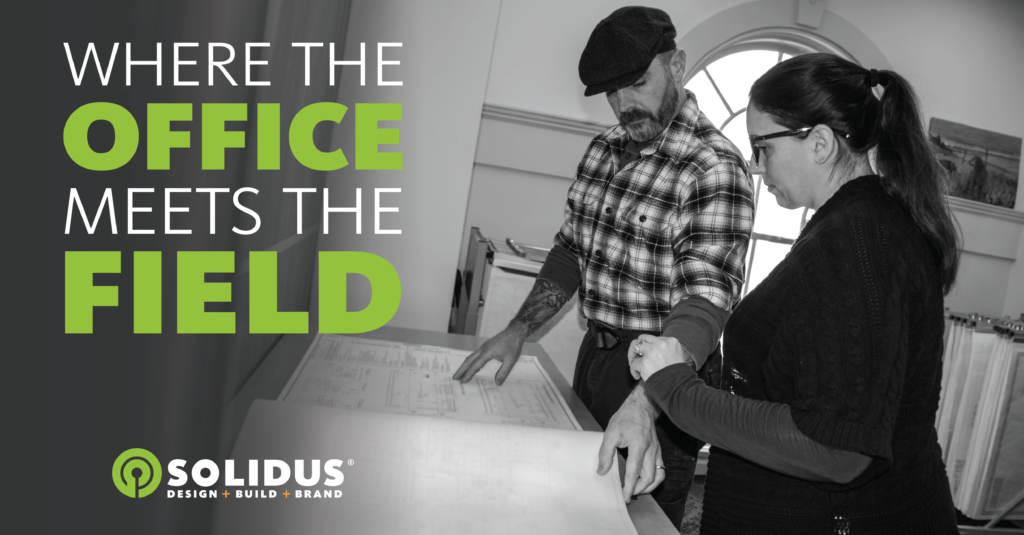The successful outcome of any construction project is defined by the tremendous amount of work done on the front end. A carefully assembled design team is tasked with producing a detailed set of drawings that reflect the client’s goals and align with their expectations. But even a strong design must be checked and balanced. While Solidus’s IPD approach dictates that all drawings undergo a rigorous review process before they are submitted to the estimating department, our estimators are often the last line of defense against oversights, errors, and omissions, all of which can be catastrophic to a general contractor’s bottom line, especially if they operate under a “No Change Order” guarantee like ours.
As the first person to inspect a project site, an estimator’s assessment of the existing conditions provides an informed path forward and helps the team identify the most viable design options. Estimators also give instrumental feedback on how to address any inevitable concerns. Their recommendations are not just theoretical, but practical, derived from decades of field experience. Like the slogan for Farmers Insurance, “They know a thing or two because they’ve seen a thing or two.” Our seasoned estimators have encountered a wide range of situations in the field, and when faced with similar challenges, they rely on their collective experience to determine the proper next steps.
Estimators play a crucial role in ensuring the success of a project. They review drawings to ensure all areas of the project run smoothly and the desired outcome is reached on all fronts. Plans and specs don’t always detail what a project needs, so it’s up to our estimators to account for this additional work and the associated costs. This includes everything from preparation for winter conditions to safety equipment and temporary utilities. These seemingly small pieces of the puzzle are of critical importance to the field superintendents who couldn’t manage their sites successfully without these measures in place.
By meticulously reviewing the drawings, our estimators can uncover flaws or conflicts that might delay or impede the bidding process. This close attention to detail showcases their commitment to thoroughness as these issues must be resolved before they can begin the daunting task of gathering and qualifying bids.
When done correctly, bid qualification should not simply boil down to selecting the lowest number. Our estimators ensure that all bids are properly leveled to cover the full scope of work and any subsequent revisions. But their due diligence doesn’t end there. In addition to considering a bidder’s number, our estimators also assess their overall competence, attitude, and personal accountability.
Did the bidder respond to our invitation promptly, or did we have to chase them down? Did they provide feedback or submit pre-bid Requests for Information (RFIs) during the bidding process? Is the bidder’s proposal riddled with exclusions? Is it straightforward and easily understood?
The bidding process is the first opportunity for a contractor to demonstrate their performance to Solidus. Our estimators use their observations to determine the best contractor for each trade. They don’t assume that the cheapest option is the best. Instead, they use their experience to weed out the least likely candidates to meet our standards and assemble an elite team of trade contractors who offer fair pricing and strong business practices. This methodical approach isn’t always standard practice in the construction industry, but after decades in the business, we know that it’s the best way to protect our interests and those of our clients.


